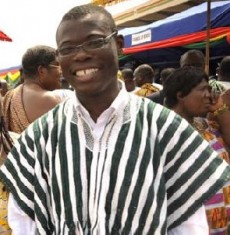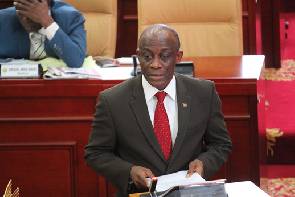 The Norwegian Ambassador to Ghana, Mrs Hege Hertzberg, has stressed the need for the building of political consensus and prudent investment of oil revenue in order to derive maximum benefit from the oil industry.
The Norwegian Ambassador to Ghana, Mrs Hege Hertzberg, has stressed the need for the building of political consensus and prudent investment of oil revenue in order to derive maximum benefit from the oil industry.
She said if oil revenue was spent on the economy, instead of being invested prudently, inflation would swallow it and the desired benefit would not be derived from the natural resource.
Sharing the Norwegian experience in the oil industry at the inaugural Ghana Oil and Gas Awards event held in Accra last Friday, Mrs Hertzberg said there was also the need to appreciate the economic dangers of becoming an oil producing country and cautioned against the over-reliance on oil to the detriment of other sectors of the economy.
The Ghana Oil and Gas Awards were under the auspices of Jubert Communications, publishers of the Offshore Ghana magazine.
The event, which was on the theme: “Recognising excellence in Ghana’s oil and gas industry”, was aimed at rewarding players in the country’s fledgling oil and gas industry for excellence in service delivery.
Norway experience
According to Mrs Hertzberg, the discovery of oil in Norway transformed the country from being one of the poorest in Europe to one of the richest in the world, with annual per capita income of between $55,000 and $60,000.
She said having first discovered oil in 1969, Norway established some common values to become the best in oil production based on respect, co-operation and equity.
She said two years later, the country developed what she described as the “10 Commandments of Oil”, an industry blueprint rigidly implemented by all governments.
Mrs Hertzberg said the Norwegian government also developed flexible and risk-friendly policies that attracted foreign investors into the industry, adding that although the government imposed 78 per cent tax on profits, the foreign companies stayed on the job.
The strategy
She said there was the need for all political parties to build consensus on the oil industry, instead of resorting to political debates over the natural resource.
She said when contracts were signed by one government, for instance, a succeeding government must refrain from abrogating the contracts in order to inject trust and confidence into the system.
Mrs Hertzberg said oil was a non-renewable natural resource and so it was important to invest revenue accruing from it very well, adding, “If you inject oil money into the economy, inflation will eat all”.
She said in the case of Norway, it used the oil money to establish a fund from which it made investments abroad and used four per cent to finance the national budget, adding that the fund kept growing because of returns on the investments.
Lessons for Ghana
The Norwegian Ambassador said there was room for Ghana to internally spend the oil money if it was well-planned.
She advised Ghana not to allow the oil sector to consume the other sectors of the economy and that it should give priority to local content development.
The Minister of Food and Agriculture, Mr Fiifi Kwetey, who chaired the event, said it was important for Ghana to learn from the experiences of other oil producing countries in order to derive maximum benefit from the natural resource.
“Our effort is to ensure that oil does not distract from other sectors of the economy,” he remarked.
Among the awardees at the event were the governments of the US and Norway for their immense support to the development of Ghana’s oil industry.





